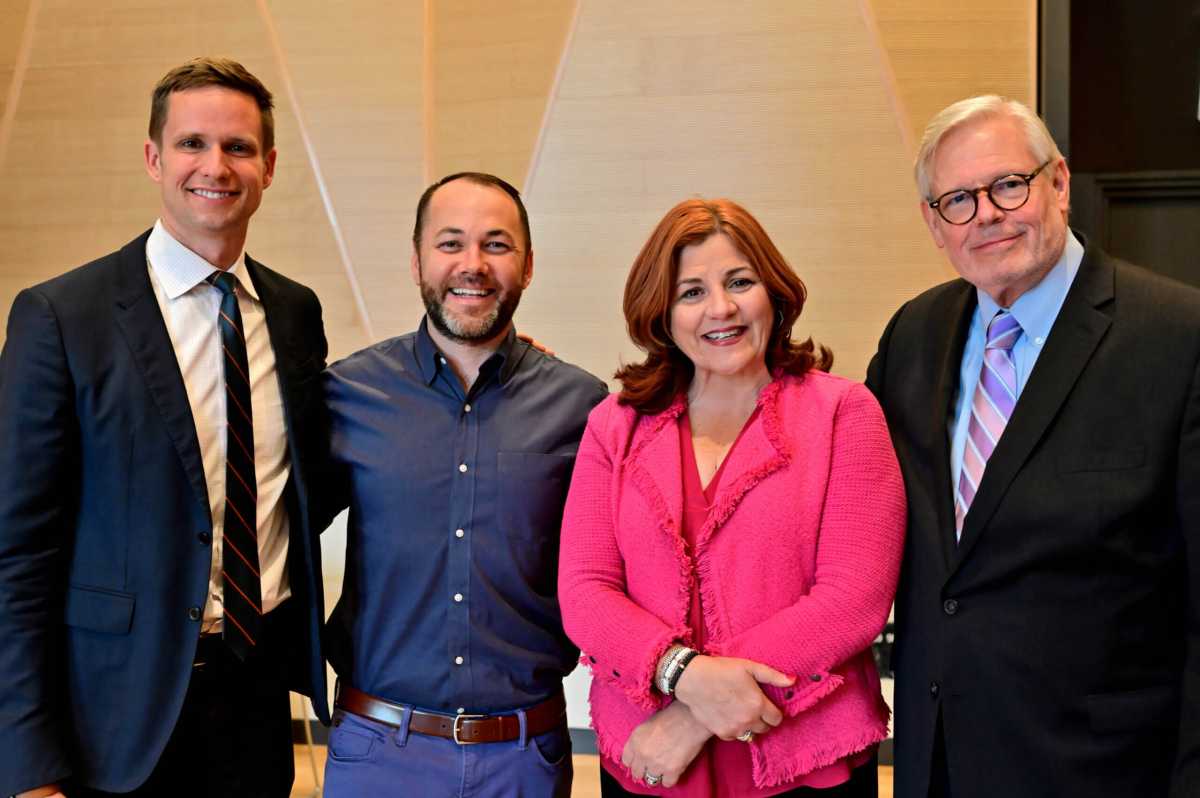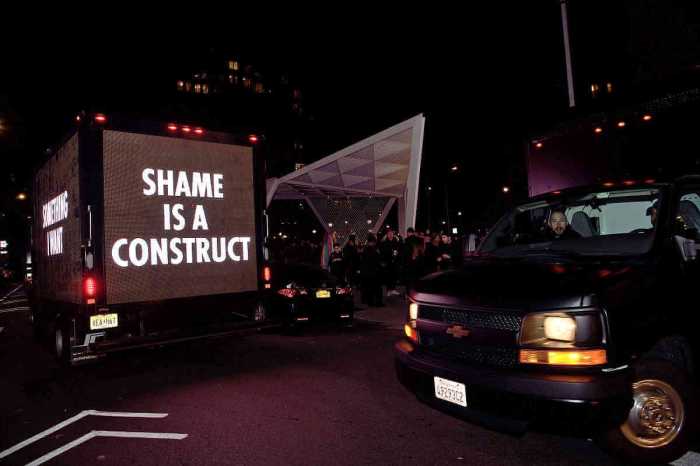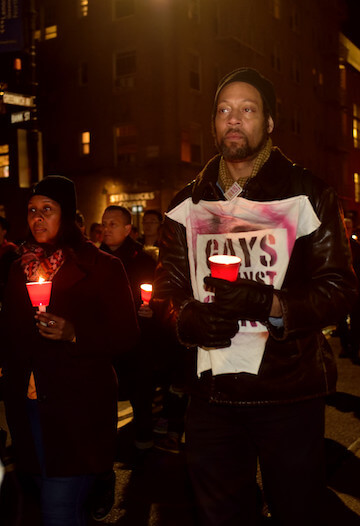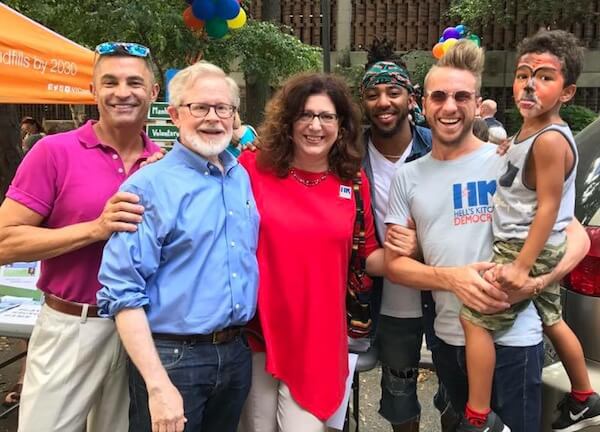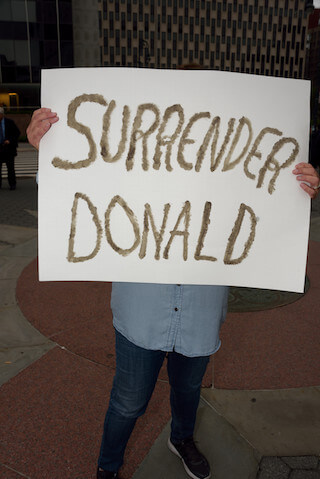And Tom begat Chris begat Corey begat Erik.
In a revealing forum at the LGBTQ Community Center on May 18 on the City Council’s “gay district” — District 3 — all the out councilmembers who have represented the seat that was carved out in 1991 to give an LGBTQ candidate a good shot at winning shared their political and personal journeys in office, their links to each other, and what they were able to accomplish for the city’s LGBTQ communities.
Gay activist Tom Duane won the seat in 1991 in his second try and after the Redistricting Commission made the Village-Chelsea district more winnable for a gay person. When he was elected to the New York State Senate in 1998, his former chief of staff, lesbian activist Christine Quinn, who had become executive director of the Gay and Lesbian Anti-Violence Project, succeeded him through a special election and went on to become the first out LGBTQ speaker of the Council. She left office due to term limits. Corey Johnson, whose gay activism began in high school and who had chaired Chelsea’s Community Board 4, won the race to succeed Quinn in that district and also went on the become speaker.
The seat is now held by Johnson’s former district chief of staff, gay activist Erik Bottcher, who had also worked for Quinn as well as Governor Andrew Cuomo on LGBTQ issues. (Duane said that he convinced Bottcher to move from the East Side to Chelsea, where he was best known for his community work in order to run for the seat.)
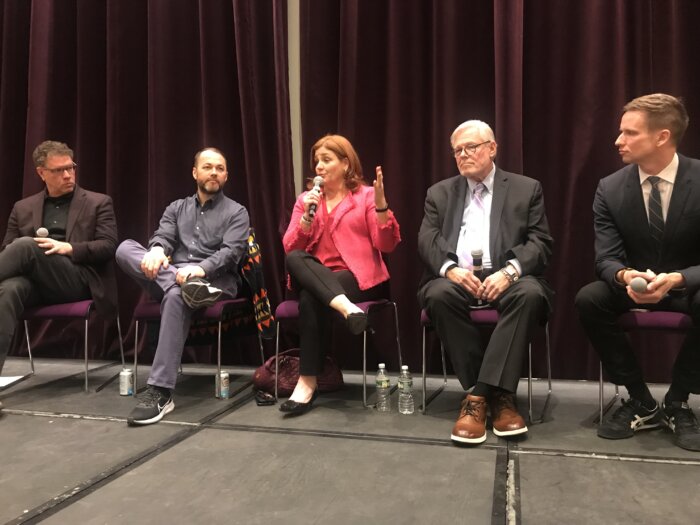
The talk was moderated by Dr. Stephen Petrus, director of public programs at the LaGuardia and Wagner Archives, which, among other things, highlights LGBTQ history in New York.
Duane said when he started on the Council as the first out member (though conservative gay Democrat Antonio Pagan of the East Village was elected at the same time), he encountered colleagues on the Council who had never interacted with an out gay person. As time went on, Speaker Peter Vallone — who had voted against the city’s bill banning discrimination based on sexual orientation in 1986, but did allow a vote on it (and it passed 21-14) — told him, “You’ve changed a lot of minds around here.”
Quinn said that in her campaign to become speaker, the key endorsement she got was from Thomas Manton, the Queens Party leader, who had also voted against the gay rights bill as a councilmember. Johnson said that the key to his bid to become speaker was Queens leader Joe Crowley, a US congressmember who was a supporter of LGBTQ rights.
They all cited increasing funding for LGBTQ social services as one of their top priorities and successes, especially for Quinn and Johnson, who served as speakers. Given legislative achievements under his predecessors, Bottcher didn’t expect LGBTQ issues to figure so prominently as they have, but then came the mpox outbreak, the druggings and murders of gay men coming out of gay clubs in Hell’s Kitchen, and the right-wing assault on drag events that led to an invasion of his apartment building in Chelsea.
In response to Bottcher’s report, Quinn said, “You think we’re in a post-gay time? Wrong!”
They all shared health issues that they had once kept secret. Duane came out as HIV-positive in his 1991 campaign and insisted Johnson come out about his before endorsing him in 2013. Quinn talked about her recent bout with cancer. And Bottcher talked about surviving attempts to take his own life — a fact that informs his push to get the city to step up mental health services.
“I sometimes think if I wasn’t born as a gay person in a rural area, if I wasn’t a survivor of suicide attempts, would I be in the role that I’m in? And I don’t think I would.”
Johnson and Duane also talked about overcoming addictions, Duane discussed coping with past sexual abuse, and Johnson recalled dealing with the clinical depression that moved him to quit the race for mayor in 2021.
Why was he so open about this? “I don’t want to live my life ashamed,” Johnson said. “My mother taught me that.”
Quinn credited The Center itself for her first election.
“GLID [the Gay and Lesbian Independent Democrats] were a huge presence here,” she said. “You have to organize to get attention and without attention there can be no change.”
Watch the entire forum below:

